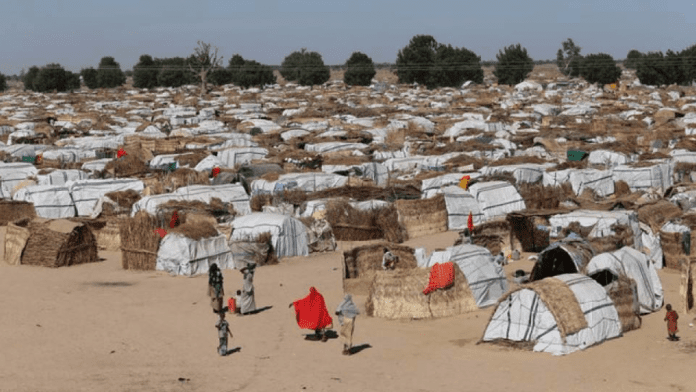News in brief:
– A Cadre Harmonise (CH) report warns that 26.5 million Nigerians in 26 states could face a severe food crisis from June to August 2024, emphasising the urgent need for proactive measures to avert a potential humanitarian catastrophe.
– Stakeholders, including government officials and organisations, call for decisive action, proposing recommendations such as promoting year-round farming and establishing food crop markets to address the looming crisis.
A recent report by Cadre Harmonise (CH) has rang alarm bells, warning that an estimated 26.5 million Nigerians across 26 states face the prospect of a severe food crisis between June and August 2024.
The alarming prediction highlights the country’s precarious food security situation. It also underscores the urgent need for proactive measures to avert a potential humanitarian catastrophe.
The CH report, presented during the November Analysis Result Presentation organised by the Kwara Ministry of Agriculture and Human Development, paints a grim picture of the looming food crisis. It specifically identifies Internally Displaced Persons (IDPs) in Zamfara, Sokoto, and Borno states as being particularly vulnerable to this impending food shortage.
The report’s findings have prompted a call for decisive action from stakeholders, including the government, policymakers, and relevant organizations.
Isiaq Oloruko-oba, Permanent Secretary of the Kwara Ministry of Agriculture and Human Development, emphasised the importance of planning and implementing strategies to mitigate the looming crisis.
Also, the CH Coordinator for Kwara, Olusoji Oyawoye, provided insights into the state’s agricultural landscape and the factors contributing to the food insecurity concerns. He highlighted the importance of agriculture as a primary livelihood source for the majority of Kwara’s population. However, he also pointed out the challenges posed by rising inflation, supply chain disruptions, and insecurity.
The report attributed the surge in inflation to a combination of factors, including disruptions in agricultural activities due to high farm input costs, insecurity, exchange rate devaluation, increased electricity tariffs, and fuel price hikes. These factors have collectively contributed to a significant increase in food prices, further exacerbating food insecurity.
To address the impending food crisis, Oyawoye advocated for a focus on all-year-round farming, emphasising the need to cultivate food crops over cash crops and promote food processing. He also called for measures to retain agricultural produce within Kwara to ensure adequate local food supply.
Habeeb Lawal, State Coordinator of the Accelerating Nutrition Results in Nigeria (ARIN) project, explained the critical link between nutrition and food security. He urged consistent action to safeguard food security, particularly for vulnerable groups such as children, the elderly, and pregnant and lactating mothers.
The stakeholders at the meeting proposed several recommendations to address the looming food crisis. These include promoting dry season farming and irrigation throughout the state to enhance food crop availability across seasons. They also encouraged the establishment of food crop markets to facilitate access to locally grown produce.



